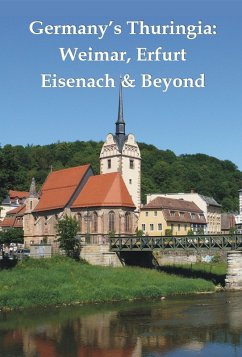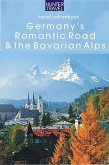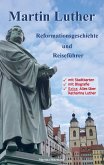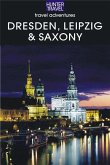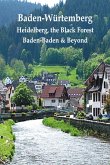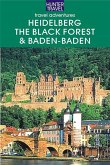Thuringia is the smallest of the former East German states that joined the Federal Republic of Germany in 1990. Its central location at the geographical heart of Germany allows easy access from all regions. Despite its small area, it has more than 400 fortresses, castles, and palaces, including the magnificent Wartburg - often referred to as the German national monument. Weimar, seat of German artists such as Goethe and Schiller, is still as important a cultural site as it was in the early 19th century. Erfurt, with 204,000 inhabitants the largest city in the state, has one of the best-preserved medieval city centers in Germany. Weimar attracted artistic talent for centuries. Johann Wolfgang von Goethe would stay in Weimar from 1775 until his death in 1832, playing a major role not only in the arts but also in the administration of the duchy. He attracted other writers, such as the dramatist Friedrich von Schiller and the theologian Gottfried Herder. Johann Sebastian Bach was organist and choirmaster in Weimar from 1708 to 1717. From 1848, Franz Liszt filled the same position. A mere six miles from the spiritual home of German humanism at Weimar, the Nazis constructed the notorious Buchenwald Concentration Camp. Between 1937 and 1945, 250,000 people were interned here and around 50,000 died. It can be visited today. A popular hike is the 17-mile Goethe Wanderweg from Weimar to Schloss Kochberg. The route is marked with a "G" in Goethe's handwriting. Although Goethe usually covered the route on horseback to visit his close confidante Charlotte von Stein, he also famously walked the route in around four hours. The most famous hotel in Weimar, and one of the best known in Germany, is the Hotel Elephant. The first paying guests slept here in 1741 and since then luminaries such as Goethe, Schiller, Bach, Clara Schumann, Felix Mendelssohn-Bartholdy, Franz Liszt, Richard Wagner, and Tolstoy spent the night. Thomas Mann used it as the setting for Lotte in Weimar (translated as Beloved Returned). Hitler stayed and apparently did not like it much, as the Nazis had the upper floors rebuilt in the style that survived to the present. The first paying guests slept here in 1741 and since then luminaries such as Goethe, Schiller, Bach, Clara Schumann, Felix Mendelssohn-Bartholdy, Franz Liszt, Richard Wagner, and Tolstoy spent the night. The most famous restaurant in Weimar is Gasthaus Zum Weißen Schwan. It is literally around the corner from the Goethehaus, which is not surprising given that it was one of Goethe's favored restaurants for entertaining. And then there is Erfurt, where your experience is simply strolling through the beautiful streets and enjoying one of Germany's most authentic medieval cities. In 742, Erfurt was founded as a bishopric by St Boniface. Its heyday was in the 14th and 15th centuries, when trade in the woad plant, used for blue dye before the introduction of indigo, made it a rich city. Martin Luther lived here from 1501 to 1511, first as a student and then as a monk. A famous legend is about the competition of the Meistersänger (troubadours) in 1206 and 1207. According to the story, six troubadours competed here in a singing competition, with the loser to lose his head. In the end the power of music triumphed and all survived. In Eisenach, the Wartburg's history goes back to around 1067, when the Ludovingian family ruled Thuringia. The most famous event in the castle's long history was in 1521, when an outlawed Martin Luther lived in the Wartburg Castle, disguised as a knight called Junker Jörg. In only 10 weeks, he translated the New Testament from Greek into German. The Wartburg has been a drawing card for tourists ever since and pilgrims carried away his original desk that he wrote upon splinter by splinter. Another famous legend is of the competition of the Meistersänger (troubadours) in 1206 and 1207. According to the story, six troubadours competed here in a singing competition, with the loser to lose his head. In the end the power of music triumphed and all survived. This unique guide has all the detail guidance you need to make your visit unforgettable - where to stay, where to eat, how to get around, what to see and do, the history, the culture and much more.
Dieser Download kann aus rechtlichen Gründen nur mit Rechnungsadresse in A, B, BG, CY, CZ, D, DK, EW, E, FIN, F, GR, HR, H, IRL, I, LT, L, LR, M, NL, PL, P, R, S, SLO, SK ausgeliefert werden.

